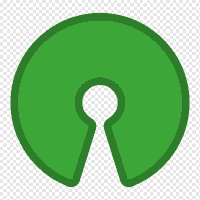
Babelfish
- 0 ratings

Self-hosted server for source code parsing. It can parse any file, in any supported language, extract an Abstract Syntax Tree from it, and convert it to a Universal Abstract Syntax Tree which can enable further analysis and transformation.
Deploy this app to RackNerd for $0.99/mo only!


This repository contains bblfsh daemon (bblfshd), which includes the runtime that runs the driver in containers and the bblfshctl, a cli tool used to control the installed drivers and query the status of the daemon.
Drivers are implemented as Docker images, each having their own repository in the
bblfsh organization
on GitHub. For more information, see bblfsh SDK documentation.
See the Getting Started guide.
This project is now part of source{d} Engine, which provides the simplest way to get started with a single command. Visit sourced.tech/engine for more information.
The recommended way to run bblfshd by itself is using Docker:
docker run -d --name bblfshd \
-p 9432:9432 \
-v /var/lib/bblfshd:/var/lib/bblfshd \
-v /proc:/newproc \
--security-opt seccomp=./bblfshd-seccomp.json \
bblfsh/bblfshdOn macOS, use this command instead to use a Docker volume:
docker run -d --name bblfshd \
-p 9432:9432 \
-v bblfsh-storage:/var/lib/bblfshd bblfsh/bblfshd \
-v /proc:/newproc \
--security-opt seccomp=./bblfshd-seccomp.json \
bblfsh/bblfshdTo understand the flags -v /proc:/newproc and --security-opt seccomp=./bblfshd-seccomp.json,
where bblfshd-seccomp.json is a file present in this repo, and check
further requirements, please refer to rootless.md. bblfshd is based on
container technology
and interacts with the kernel at a low level. It exposes a gRPC server at the port 9432 by default
which is used by the clients
to interact with the server. Also, we mount the path /var/lib/bblfshd/ where
all the driver images and container instances will be stored.
We advise against it, but if you prefer to run bblfshd in privileged mode to skip configuration steps of
rootless.md, you could do, in Linux:
docker run -d --name bblfshd --privileged -p 9432:9432 -v /var/lib/bblfshd:/var/lib/bblfshd bblfsh/bblfshdor macOs:
docker run -d --name bblfshd --privileged -p 9432:9432 -v bblfsh-storage:/var/lib/bblfshd bblfsh/bblfshdNow you need to install the driver images into the daemon, you can install the official images just running the command:
docker exec -it bblfshd bblfshctl driver install --allYou can check the installed versions by executing:
docker exec -it bblfshd bblfshctl driver list+----------+-------------------------------+---------+--------+---------+-----+-------------+
| LANGUAGE | IMAGE | VERSION | STATUS | CREATED | GO | NATIVE |
+----------+-------------------------------+---------+--------+---------+-----+-------------+
| python | //bblfsh/python-driver:latest | v1.1.5 | beta | 4 days | 1.8 | 3.6.2 |
| java | //bblfsh/java-driver:latest | v1.1.0 | alpha | 6 days | 1.8 | 8.131.11-r2 |
+----------+-------------------------------+---------+--------+---------+-----+-------------+To test the driver you can execute a parse request to the server with the bblfshctl parse command,
and an example contained in the Docker image:
docker exec -it bblfshd bblfshctl parse /opt/bblfsh/etc/examples/python.pyIf your system has SELinux enabled (which is the default in Fedora, Red Hat, CentOS
and many others) you'll need to compile and load a policy module before running the
bblfshd Docker image or running driver containers will fail with a permission
denied message in the logs.
To do this, run these commands from the project root:
cd selinux/
sh compile.sh
semodule -i bblfshd.ppIf you were already running an instance of bblfshd, you will need to delete the
container (docker rm -f bblfshd) and run it again (docker run...).
Once the module has been loaded with semodule the change should persist even
if you reboot. If you want to permanently remove this module run semodule -d bblfshd.
Alternatively, you could set SELinux to permissive module with:
echo 1 > /sys/fs/selinux/enforce(doing this on production systems which usually have SELinux enabled by default should be strongly discouraged).
If you wish to work on bblfshd , you'll first need Go installed on your machine (version 1.11+ is required) and Docker. Docker is used to build and run tests in an isolated environment.
For local development of bblfshd, first make sure Go is properly installed and
that a GOPATH has been set. You will
also need to add $GOPATH/bin to your $PATH.
Next, using Git, clone this repository into
$GOPATH/src/github.com/bblfsh/bblfshd. All the necessary dependencies are
automatically installed, so you just need to type make. This will compile the
code and then run the tests. If this exits with exit status 0, then everything
is working!
Ensure you have ostree and development libraries for ostree installed.
You can install from your distribution pack manager as follow, or built from source (more on that here).
Debian, Ubuntu, and related distributions:
$ apt-get install libostree-devFedora, CentOS, RHEL, and related distributions:
$ yum install -y ostree-develArch and related distributions:
$ pacman -S ostreeBuild with:
$ make buildRun tests with:
$ make testBBLFSHD_MAX_DRIVER_INSTANCES - maximal number of driver instances for each language.
Default to a number of CPUs.
BBLFSHD_MIN_DRIVER_INSTANCES - minimal number of driver instances that will be run
for each language. Default to 1.
Bblfshd supports OpenTracing that can be used to profile request on a high level or trace individual requests to bblfshd and/or language drivers.
To enable it, you can use Jaeger. The easiest way is to start all-in-one Jaeger image:
docker run -d --name jaeger \
-e COLLECTOR_ZIPKIN_HTTP_PORT=9411 \
-p 5775:5775/udp \
-p 6831:6831/udp \
-p 6832:6832/udp \
-p 5778:5778 \
-p 16686:16686 \
-p 14268:14268 \
-p 9411:9411 \
jaegertracing/all-in-one:1.8For Docker installation of bblfshd add the following flags:
--link jaeger:jaeger -e JAEGER_AGENT_HOST=jaeger -e JAEGER_AGENT_PORT=6831 -e JAEGER_SAMPLER_TYPE=const -e JAEGER_SAMPLER_PARAM=1For bblfshd running locally, set following environment variables:
JAEGER_AGENT_HOST=localhost JAEGER_AGENT_PORT=6831 JAEGER_SAMPLER_TYPE=const JAEGER_SAMPLER_PARAM=1Run few requests, and check traces at http://localhost:16686.
For enabling tracing in production, consult Jaeger documentation.
GPLv3, see LICENSE
Please login to review this project.
No reviews for this project yet.
Remote development machines on your own infrastructure.
WakaTime server implementation with analytics dashboard.
Web browser based IDE for R.
Comments (0)
Please login to join the discussion on this project.